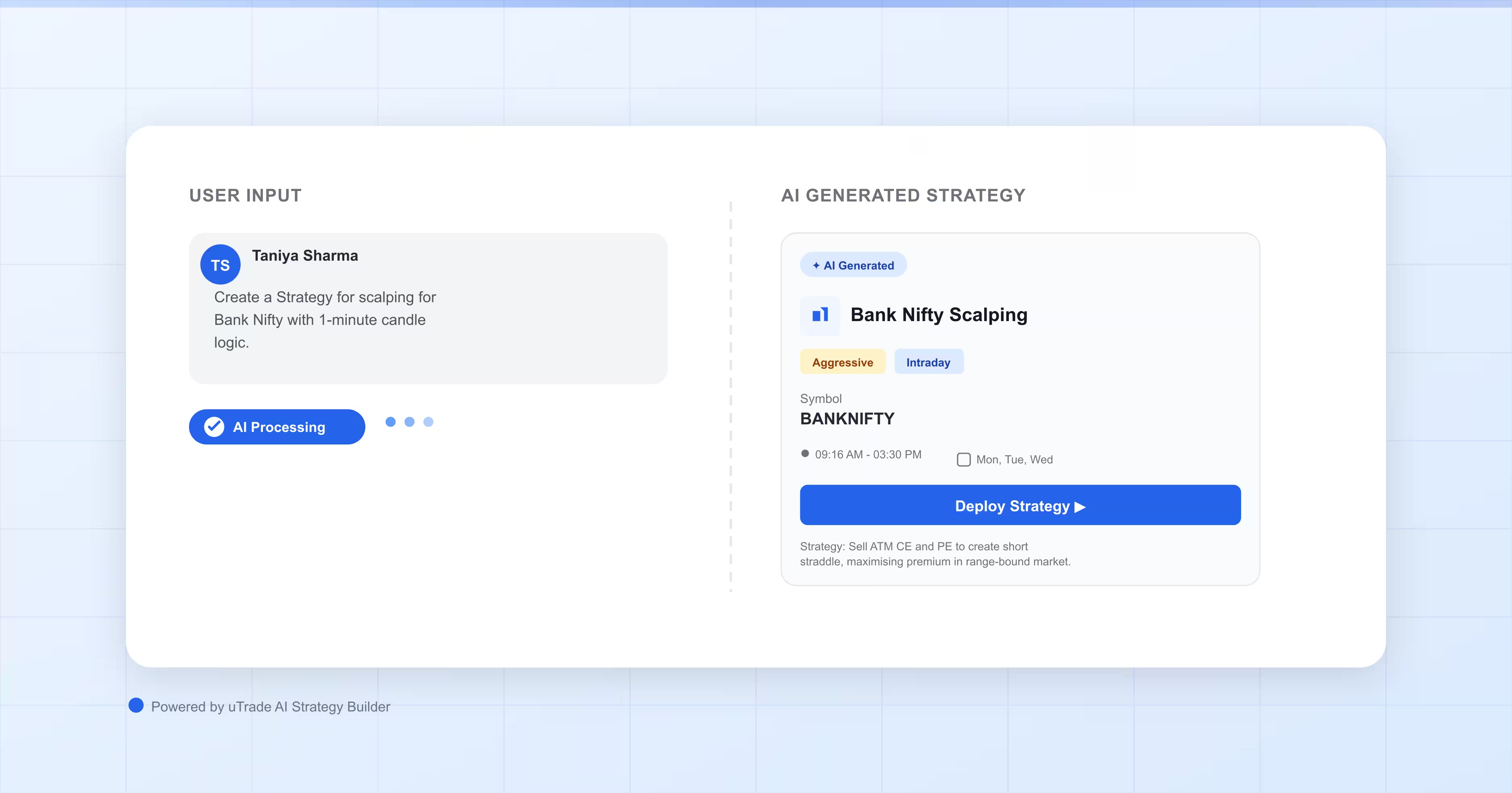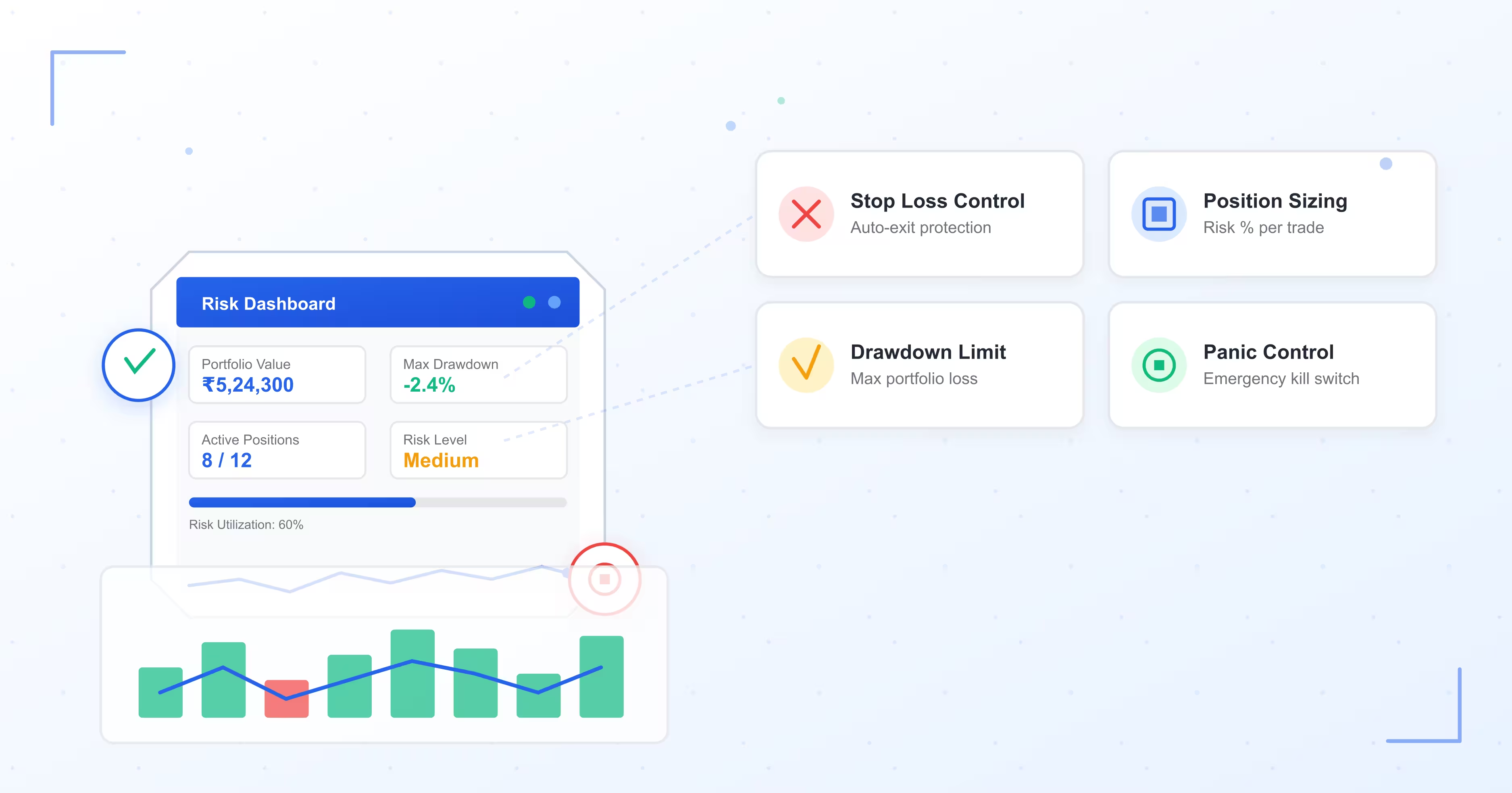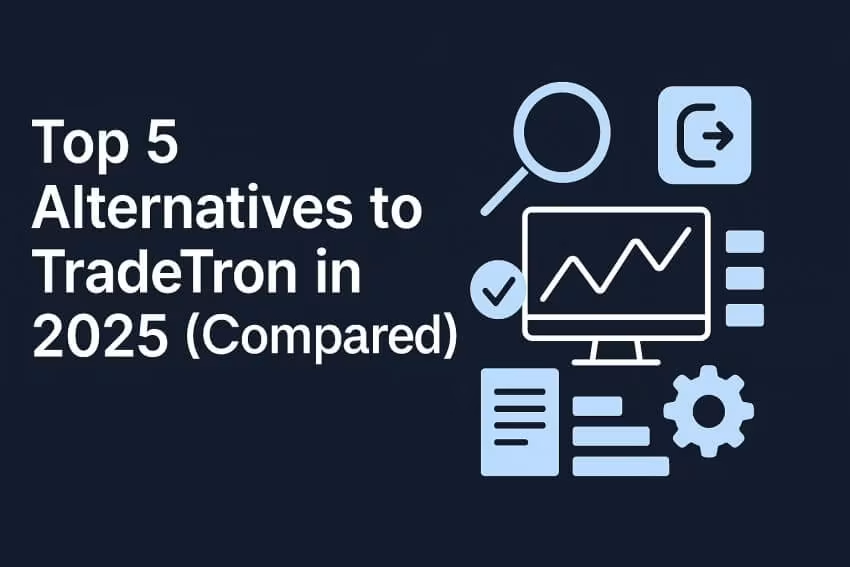In recent years, algorithmic trading (or algo trading) has gained significant traction, especially among Nifty traders. The ability to automate trading strategies and execute trades based on predefined criteria offers a new level of precision and efficiency. For traders involved in Nifty, which refers to the Nifty 50, India’s premier stock index, algo trading can be a game-changer. In this blog, we'll explore what algo trading Nifty is, how it works, and why it has become such an essential tool for traders.
What Is Algo Trading Nifty?
Algo trading Nifty refers to the use of algorithmic trading strategies to trade Nifty 50 stocks and derivatives, including Nifty options. This form of trading relies on computer algorithms to execute trades at speeds and efficiencies far beyond human capabilities. These algorithms are designed to follow specific rules and strategies, such as buying or selling based on price movements, technical indicators, or other market conditions.
In the context of Nifty, algo trading can involve trading the stocks that make up the Nifty 50 index or trading Nifty options, which are derivatives based on the index. By automating the trading process, algo trading allows traders to take advantage of market opportunities with precision and consistency.
How Does Algo Trading Nifty Work?
Algo trading Nifty options operates through a series of steps that involve the use of advanced technology, trading strategies, and continuous monitoring of market conditions. Here’s how it works
1. Algorithm Development
The first step in algo trading Nifty is developing a trading algorithm. This involves defining the rules and strategies that the algorithm will follow. For example, a trader might create an algorithm that buys Nifty 50 stocks when they break above a certain moving average or sells Nifty options when volatility reaches a specific level. The algorithm is essentially a set of instructions that dictate when and how trades will be executed.
2. Backtesting
Before deploying an algorithm in live trading, it’s essential to test it using historical data. This process, known as backtesting, allows traders to see how the algorithm would have performed in the past. Backtesting helps identify any potential flaws in the strategy and ensures that the algorithm is robust enough to handle different market conditions. Platforms like an algo trading platform like uTrade Algos often offer built-in backtesting features, making it easier for traders to validate their strategies.
3. Execution
Once the algorithm is developed and tested, it can be deployed in a live trading environment. The algorithm will automatically execute trades based on the predefined criteria. For example, if the algorithm detects a buying signal for a Nifty 50 stock, it will place a buy order without the need for manual intervention. This execution is done at lightning-fast speeds, often within milliseconds, allowing traders to capitalize on market opportunities more effectively.
4. Continuous Monitoring
Even after the algorithm is deployed, continuous monitoring is essential. Traders need to ensure that the algorithm is functioning correctly and that it adapts to changing market conditions. Some algo trading software and platforms offer real-time monitoring and analytics, allowing traders to make adjustments as needed.
5. Risk Management
Algo trading Nifty also involves implementing risk management techniques. This can include setting stop-loss orders, using trailing stops, or adjusting position sizes based on market conditions. Proper risk management is crucial to ensure that the algorithm doesn’t expose the trader to excessive risks.
Role of Algo Trading Software
Algo trading Nifty relies heavily on specialized software that can handle the complexities of algorithmic trading. These tools are designed to execute trades automatically based on the predefined rules set by the trader. Here’s a closer look at the role of algo trading software:
- Automation: Algo trading software automates the entire trading process, from identifying opportunities to executing trades. This eliminates the need for manual intervention and allows traders to focus on refining their strategies.
- Speed and Efficiency: One of the key advantages of using algo trading software is its speed. The software can execute trades in milliseconds, ensuring that traders can take advantage of market opportunities before they disappear.
- Data Analysis: Many algo trading software platforms come equipped with advanced data analysis tools. These tools allow traders to analyze market data, identify trends, and fine-tune their algorithms.
- Integration with Brokers: Algo trading software is typically integrated with brokerage platforms, enabling seamless execution of trades. This integration ensures that the software can place orders directly with the broker without any delays.
- Customisation: Traders can customize algo trading software to suit their specific needs. Whether it’s adjusting risk parameters, adding new strategies, or setting specific conditions for trade execution, the software can be tailored to individual preferences.
For traders looking for the best algorithmic trading software, it’s essential to choose a platform that offers the right features and capabilities. A platform like uTrade Algos, for example, provides a user-friendly interface, robust backtesting tools, and seamless integration with brokers, making it a popular choice among Nifty traders.
Benefits of Algo Trading Nifty
Algo trading Nifty offers several advantages over traditional manual trading methods. Here are some of the key benefits:
- Elimination of Human Emotion: One of the most significant advantages of algo trading is the removal of human emotion from the trading process. Emotions like fear and greed can cloud judgment and lead to poor decision-making. Algo trading ensures that trades are executed based on logic and predefined rules, rather than emotions.
- Consistency: Algo trading allows for consistent execution of trading strategies. Since the algorithm follows predefined rules, it eliminates the inconsistencies that can arise from manual trading.
- Scalability: Algo trading enables traders to scale their strategies more efficiently. With the ability to execute multiple trades simultaneously, algo trading makes it easier to manage large portfolios and complex strategies.
- Precision: The speed and accuracy of algo trading software ensure that trades are executed at the optimal price levels. This precision can make a significant difference in fast-moving markets like Nifty.
How to Get Started with Algo Trading Nifty
If you’re interested in exploring algo trading Nifty, here are some steps to get started:
- Choose the Right Software: Selecting the best algorithmic trading software is crucial. Look for a platform that offers the features you need, such as backtesting, real-time data analysis, and integration with your preferred broker. An algo trading platform like uTrade Algos is an excellent choice for Nifty traders.
- Develop a Strategy: Before you start trading, develop a clear trading strategy. Define the rules and criteria that your algorithm will follow. This could involve technical indicators, price patterns, or other market conditions.
- Backtest Your Strategy: Use historical data to test your algorithm and ensure that it performs well in different market conditions. Backtesting is essential to validate your strategy before deploying it in a live environment.
- Monitor and Adjust: Even after you start trading, keep a close eye on your algorithm’s performance. Make adjustments as needed to ensure that it continues to perform optimally.
In conclusion, algo trading Nifty has revolutionized the way traders approach the market. By automating trading strategies and executing trades with precision, algo trading offers a level of efficiency and consistency that is difficult to achieve with manual trading. Whether you’re trading Nifty stocks or Nifty options, algo trading can help you take your trading to the next level. By choosing the right algorithmic trading software, developing a solid strategy, and continuously monitoring your performance, you can harness the power of algo trading to navigate the complexities of the Nifty market.












